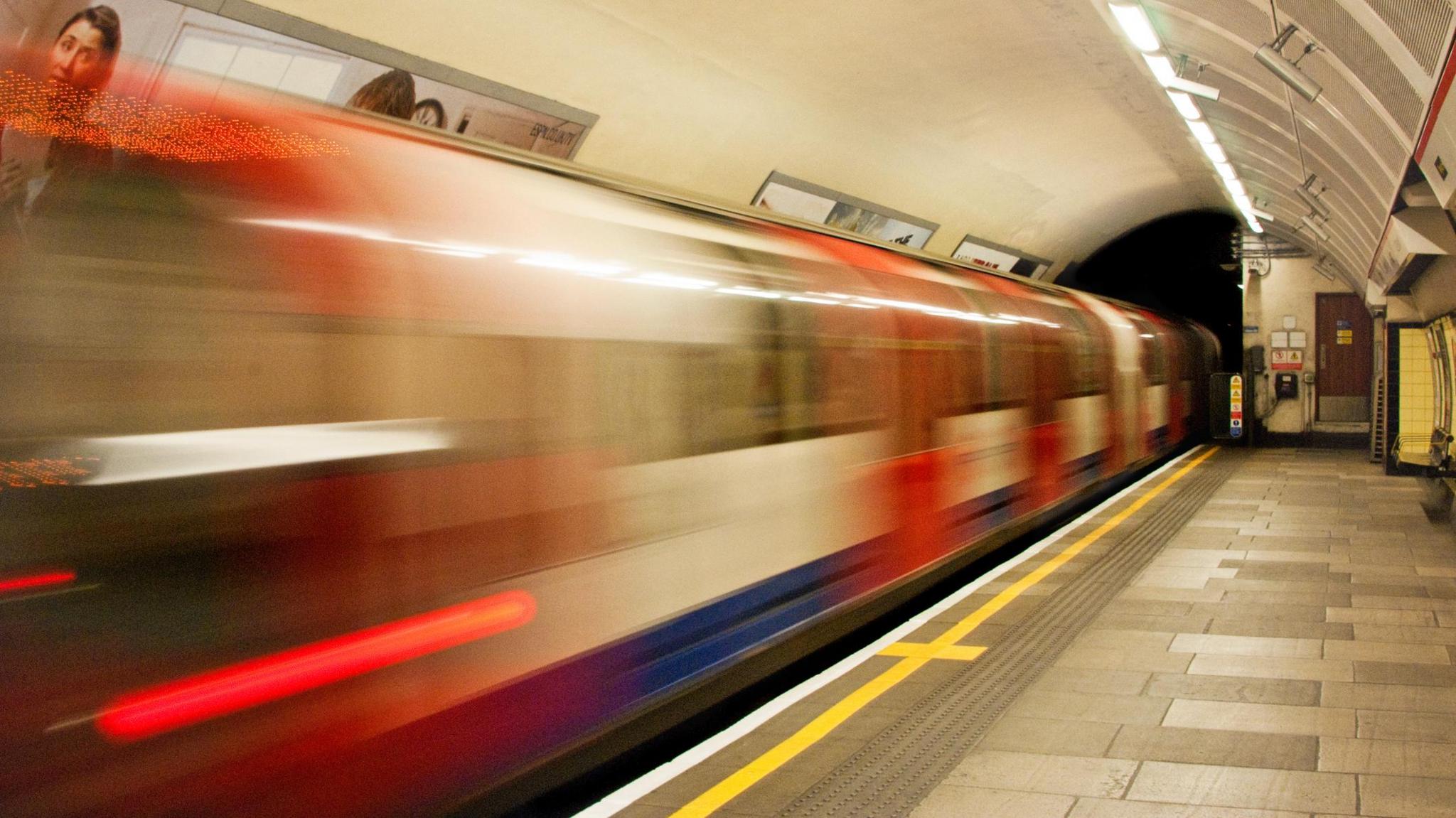Why is the Victoria line so loud?
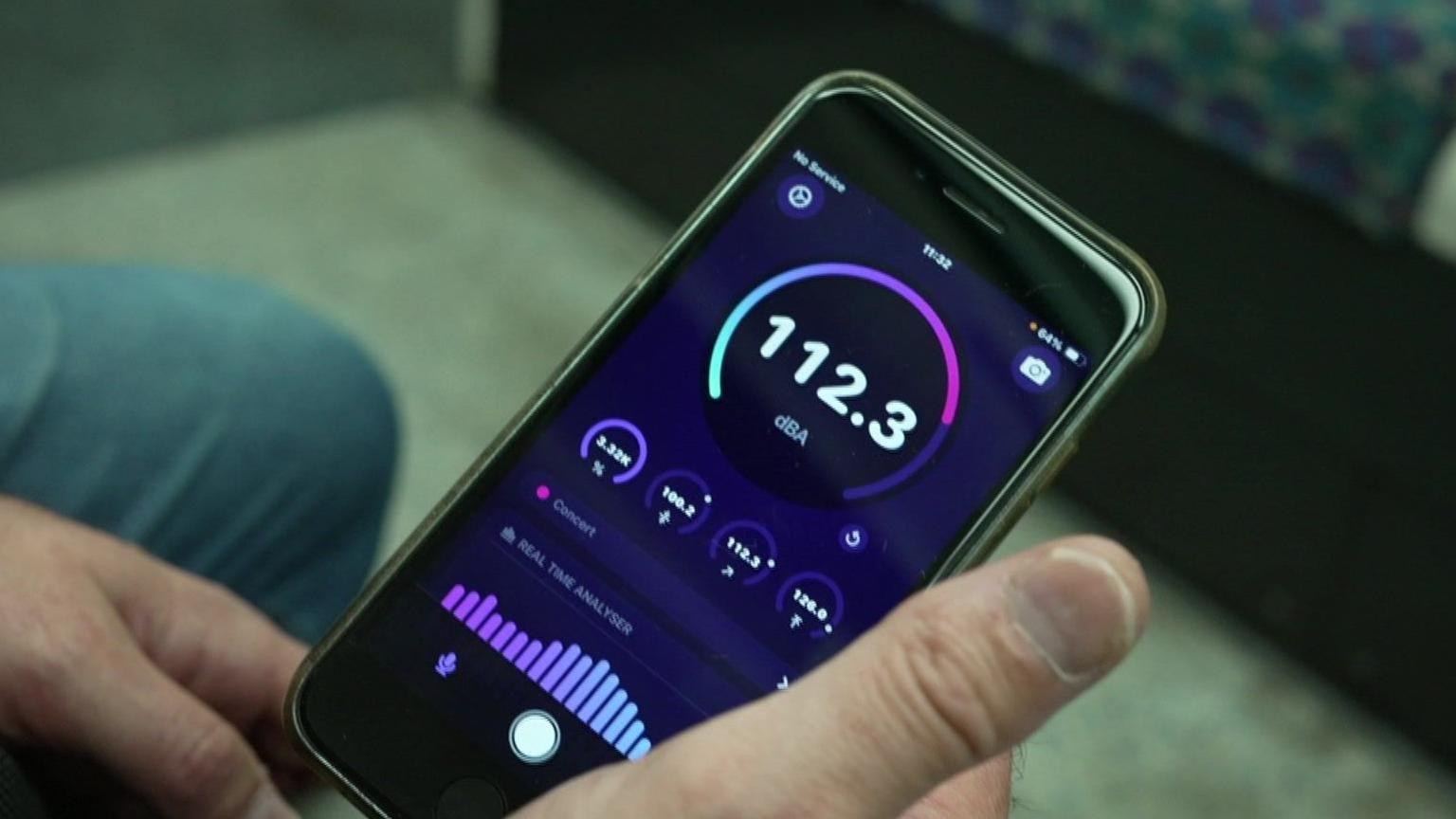
BBC London recorded noise levels on the Victoria line that were higher than a music concert - but lower than a chainsaw
- Published
Engineers for London Underground (LU) say they have identified why the Victoria line is experiencing unusually high noise levels.
Drivers and passengers have recently complained about loud screeching noises.
The Aslef union said the noise was the worst it had ever been and drivers were driving slowly over some sections to protect their hearing, while the RMT union has balloted its members for strike action over the issue. LU has issued drivers with hearing protection.
A speed restriction that was introduced due to flooding at Green Park has been found to be the indirect cause of the noise.
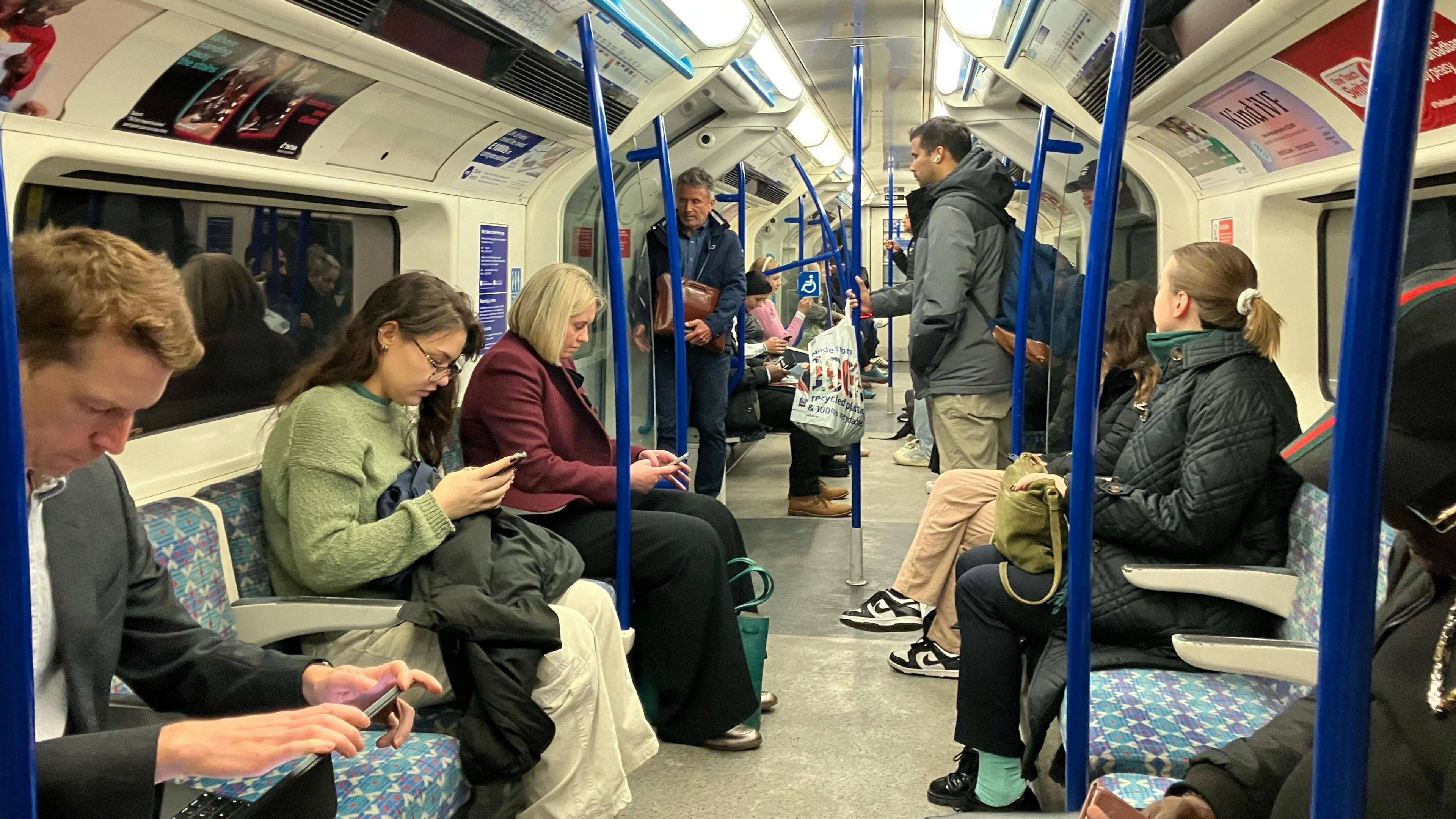
Unions say they are concerned that noise levels have never been so high on the Underground
The speed restriction there meant the trains ran faster over the rest of the line to keep up service frequencies.
But the faster speeds increased rail "pitting" where the tracks are eroded. That leads to high noise levels when the train wheels run over the affected sections of track.
The noisiest section on the Victoria line is southbound between Finsbury Park and Highbury & Islington.
BBC London recently measured the noise levels on an app, which peaked at 112.3 decibels.
A typical music concert has a sound level of 110dB while a chainsaw operates at about 120dB.
Noise-cancelling headphones
Franki Oliver from the Royal National Institute for Deaf People (RNID) said 115dB could be painful and might "damage the hearing for commuters".
"If you start to experience pain when you are exposed to a loud sound, you really should leave that area immediately because it can be really dangerous," she said.
The RNID wants to raise awareness of noise damage to hearing.
The charity advises wearing noise-cancelling headphones, which can help while commuting, but to keep the volume as low as possible to try to reduce exposure to loud noise across the day.
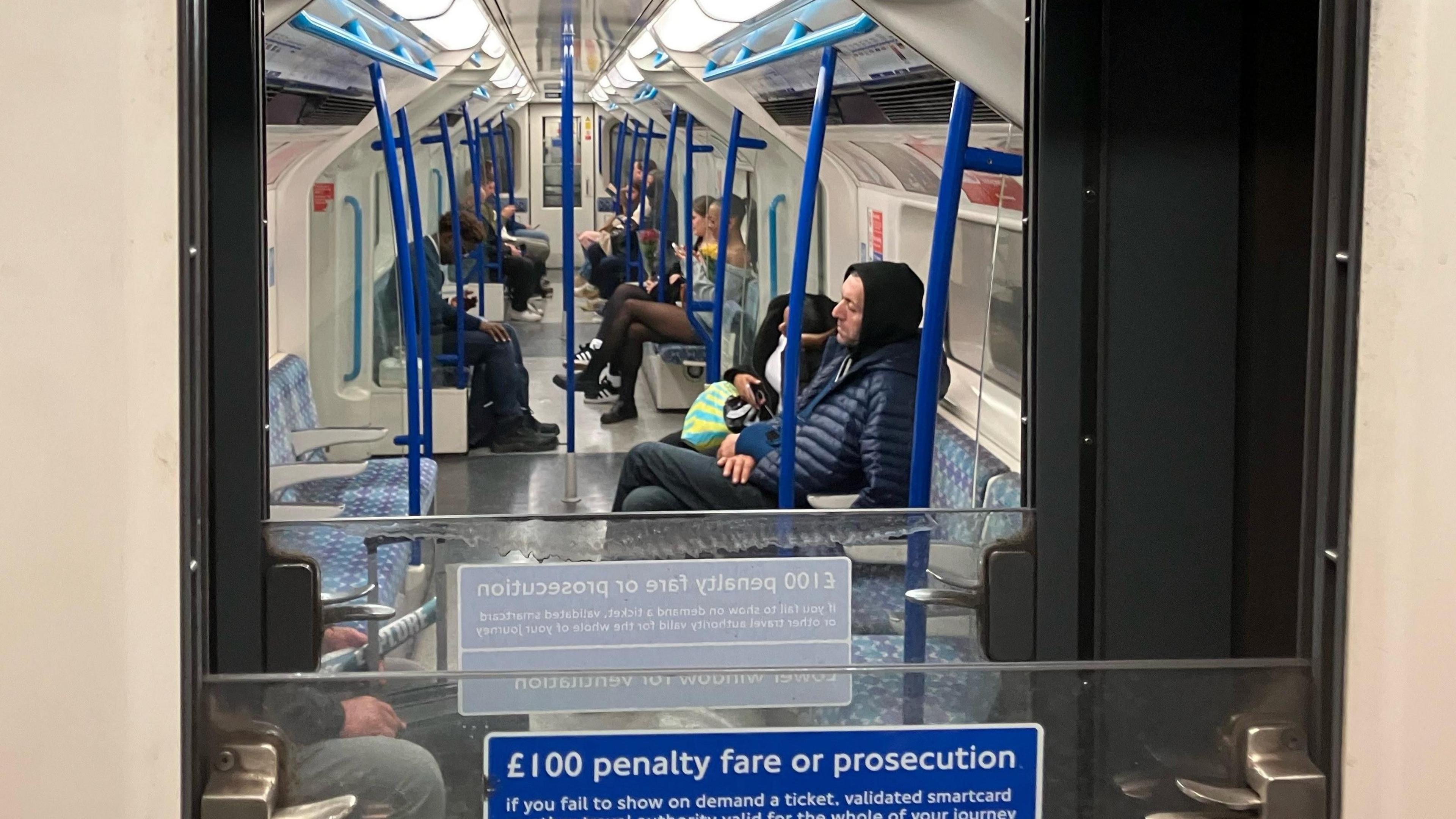
Passengers have found it difficult to have a snooze on the noisier sections of the Victoria line
Until February, LU will deploy more rail-grinding teams on the Victoria line at 60 sites as part of overnight engineering work.
Grinding removes the rail pitting and helps lessen the noise levels. LU expects that by 25 November the levels will be back to normal and drivers will not have to use hearing protection.
It is also looking at reducing speeds on some sections of track to stop rail pitting.
Listen to the best of BBC Radio London on Sounds and follow BBC London on Facebook, external, X, external and Instagram, external. Send your story ideas to hello.bbclondon@bbc.co.uk, external
- Published22 October 2024
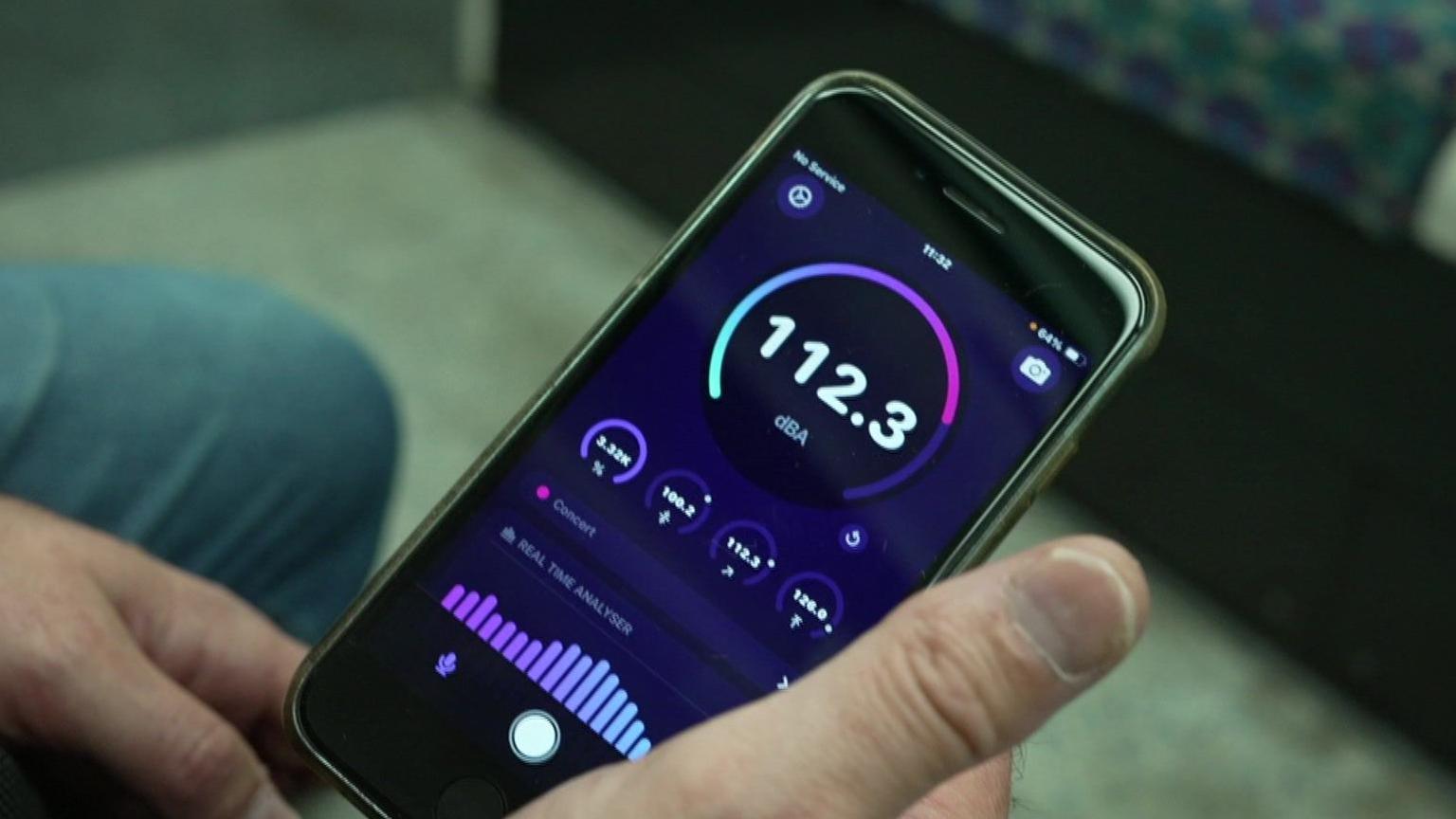
- Published18 October 2024
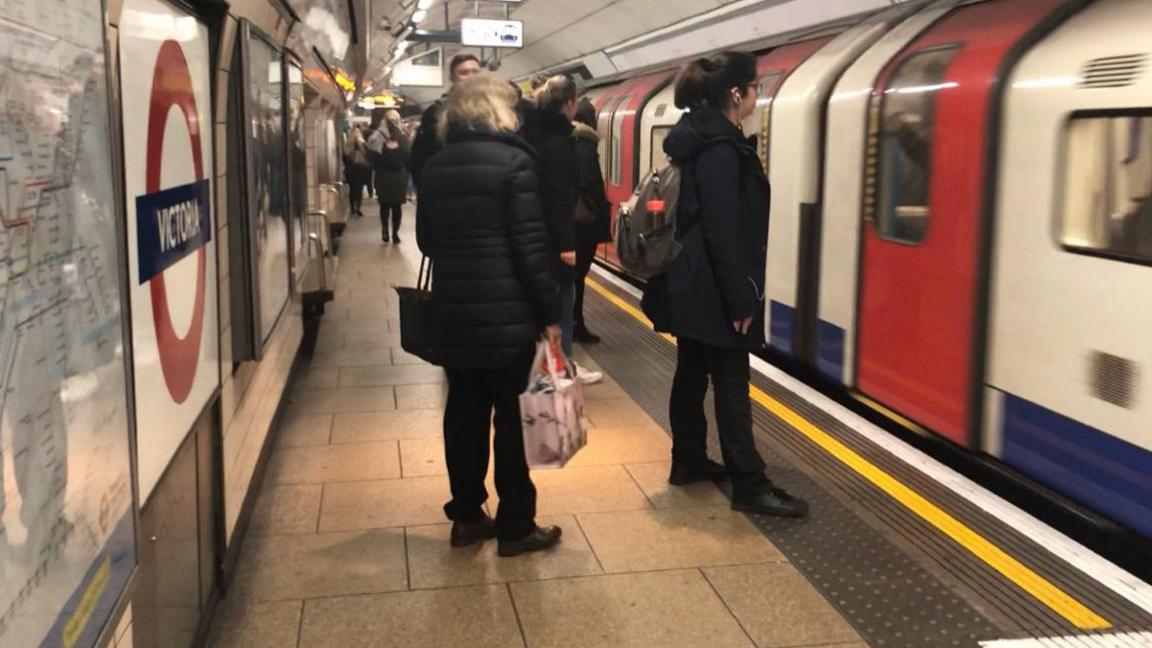
- Published15 May 2023
